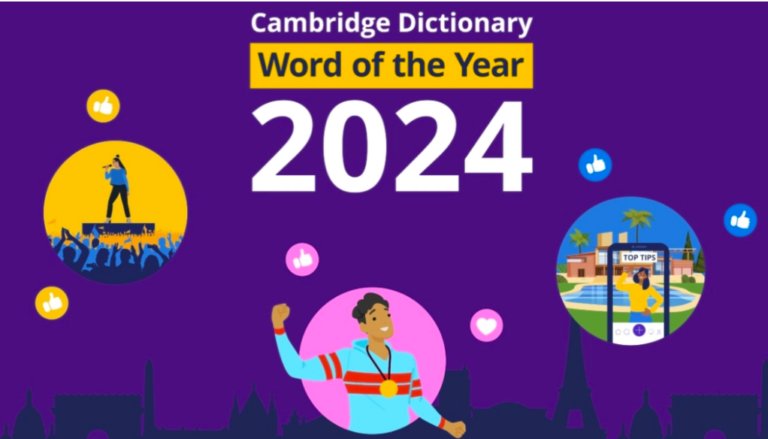The word “manifest” has been chosen as the word of the year for 2024 by the Cambridge Dictionary. The term, used as a verb, means “to envision or pursue the realization of a goal,” and its selection reflects the growing popularity of the concept online, largely driven by celebrities promoting it.
The word “manifest” has a long history. As an adjective, it translates to “obvious,” “clear,” or “evident,” and has been in the English language since the 14th century. In contemporary usage, it is employed as a verb expressing the idea of achieving goals through visualization and positive thinking.
According to the Cambridge Dictionary, “manifest” refers to “using methods such as visualization (imagining a desire in one’s mind) and positive affirmations (repeating positive phrases) to foster the achievement of a goal, with the belief that doing so increases the likelihood of success.”
The concept of “manifesting” has been widely embraced by various celebrities. Pop star Dua Lipa, who was a key figure at Glastonbury this past summer, attributed her success to the practice of manifesting. She said, “Visualization is very important to me. I strongly believe in the power of stating your desires to the world. Subconsciously, you work towards them. Nothing is too big.”
Olympic gymnast Simone Biles has also associated her success with manifesting, stating that she had envisioned her achievements from a young age.
Significant Rise in Searches
The word saw a sharp increase in searches in 2024, with over 130,000 searches on the Cambridge Dictionary’s website. According to the dictionary’s publishing manager, the usage of the term has expanded significantly across all media, demonstrating how the meaning of a word can evolve over time.
“Manifest” has its roots in French and Latin and was first used by Chaucer in the 14th century. Shakespeare also used it as both a noun and a verb.
The Modern Concept of Manifesting
The modern use of “manifesting” as “creating reality through thought” emerged in the early 20th century, influenced by the spiritualist movement. However, its widespread popularity is a more recent phenomenon, thanks in part to social media and the COVID-19 pandemic. During the pandemic, the term frequently appeared on social media platforms, offering advice on how to manifest wealth, career success, or abundance.
This year, manifesting gained even more traction as various celebrities and influential individuals credited their success to the practice.
The Shift in Meaning
Interestingly, there has been a shift in the tone of the word “manifest.” In the past, it was often linked to negative connotations, but this year, it has taken on a more positive meaning.
However, scientists have pointed out that manifesting lacks scientific grounding and its popularity can be attributed to social media. “Manifesting is what psychologists call ‘magical thinking,’ the illusion that certain mental processes can alter the reality around us,” said Dr. Sander van der Linden, a professor of social psychology at Cambridge University. “There is solid research supporting the value of positive thinking and goal setting. These are important factors, but positive thinking should be distinguished from pseudoscience.”
Nevertheless, the word’s popularity on social media suggests that, despite its debated scientific basis, the trend of manifesting remains strong, reflecting a human desire for hope and control in uncertain times.
Ask me anything
Explore related questions





